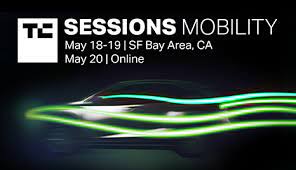ReMo at TC Sessions: Mobility 2022

In May, our executive director Alisyn Malek participated in TC Sessions: Mobility 2022 in San Mateo, California. The panel featured Argo AI’s chief corporate responsibility officer Summer Fowler, and Zoox’s senior director of product experience Riccardo Giraldi, along with TechCrunch’s transportation editor Kirsten Korosec. The topic of discussion? Building AVs for all through accessibility, equity and inclusion.
It was a dynamic conversation, bringing together the experienced minds in the mobility and autonomous vehicle (AV) spaces. Throughout the discussion it became clear: Accessibility is a key component to being a “good AV citizen.” For that to happen, the conversation concluded that we must consider the following:
Ask the Tough Questions – Profit vs. Societal Good
Kirsten mentioned the “Utopian Vision” for AVs – the idea that they’ll lead to a greener, safer, more equitable society (e.g. parks over parking lots, less traffic incidents, and new levels of accessibility). We’re at an exciting inflection point—one where the technology that has long been an idea in development is now ready. But we have to revisit its very purpose.
We must figure out how to use the technology and set up the business cases appropriately so that transportation is equitable from a socioeconomic perspective. This means private AV companies—like those of Zoox and Argo—have to ask tough questions about their price model and in which communities they operate. Can they balance profit and ensure equitable access?
Bring Others to the Table
Beyond access, the panel also emphasized the need to create AVs with all users in mind, especially those who need transportation the most. First, we need diversity in the engineering teams creating these vehicles. And as Zoox and Argo emphasized, we also need collaboration across disciplines, policy makers and communities.
For example, Zoox is working with United Spinal, the National Federation of the Blind and other groups knowledgeable of pain points in those communities to help design AVs with everyone in mind (e.g. what does a visually impaired user need in the product?). Argo kicked off community advisory groups in pilot cities around the country. These feature healthcare professionals, real estate agents, city officials and more to inform how they can make cities safer and more accessible.
The above emphasizes the very purpose of the Coalition for Reimagined Mobility – re-shaping mobility ecosystems with people first. AVs are one aspect of this system, but the takeaways are applicable regardless of mode.
Bringing influential decision-makers and innovators to the table is the key to unlocking our mobility future. We must have more conversations like this one.
